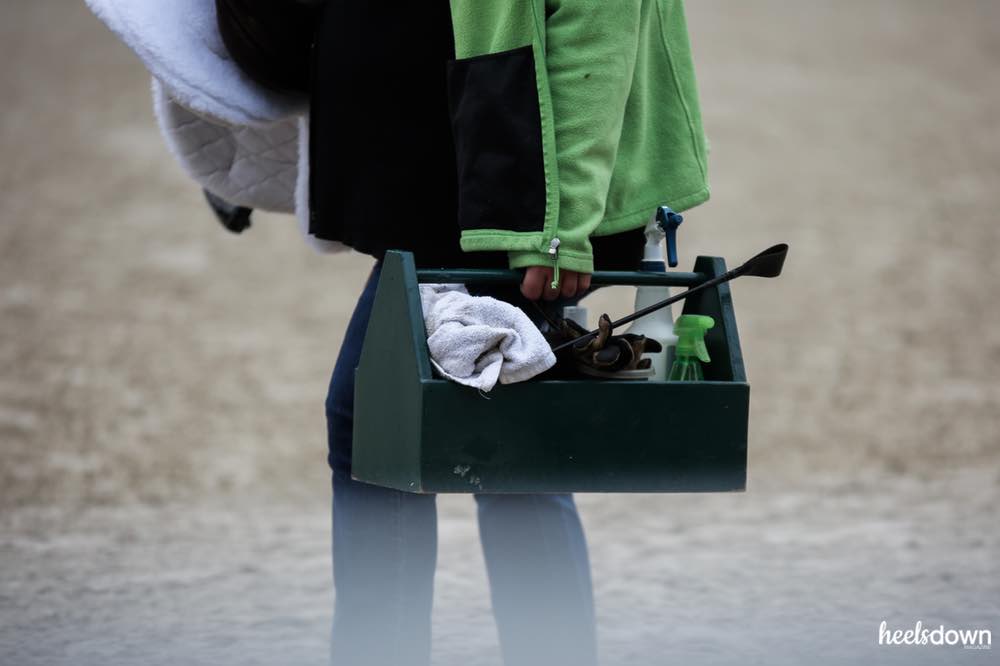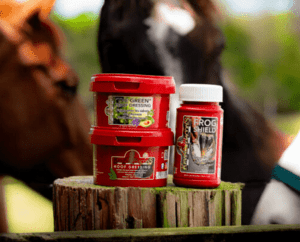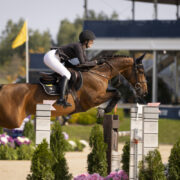When Your Horse Hates To Be Groomed

Maybe you’ve got an ex-racer with “thin-skinned Thoroughbred” syndrome. Or maybe you have a horse who is just generally grumpy when it comes time to “de-mud” him after coming in from the wet pasture.
There are a number of reasons why a horse may not like to be groomed. Sometimes it’s a sign of a larger medical issue going on – they could be shying away because they are in pain. Other times, it’s just their personality – they just plain don’t like it!
Either way, if you have a horse who doesn’t like to be groomed, here are a few tips to help warm them up to the idea.
Rule Out Pain
A horse may seem “girthy” or uncomfortable when curried or brushed along the sides of his abdomen if he has stomach ulcers. If the grumpy behavior is relatively new, setting up a vet appointment may be your best first step. A chiropractor or body worker could also help rule out soreness in other areas of the body, say near the withers, shoulders or hips.
Reverse Your Routine
Some horses resist being groomed before being ridden. An alternative idea is to “dust off” your horse just enough to tack up, but then to do most of your grooming after the ride, once the horse’s muscles are warmed up and limber. The experience may be more enjoyable then.
Try Something Softer
For horses that shy away from the sticky bristles of a hard or even soft brush, there are some other grooming tools you can try instead. A rub rag – or a dedicated towel – maybe used to rub into your horse’s coat. Plenty of equestrian companies make soft, fleece “grooming mitts” which may work in place of a brush. The Epona Tiger’s Tongue is another fan favorite brushing alternative.
Positive Reinforcement
Sometimes owners need to go the extra mile to show their horses that grooming can and should be a stress-free activity for them. That can take some training. Put a hay bag in their stall or on the wash rack while you’re grooming. Reward them with a cookie when they stand still. Take breaks if you’re headed for a long grooming job – get them off the crossties to hand graze for a few minutes in between working on that caked and dried mud. Over time, they’ll learn to relax a little.


